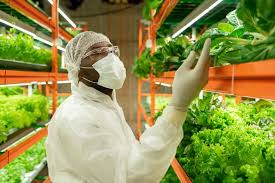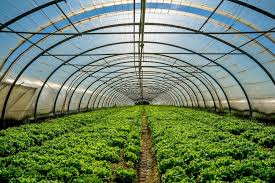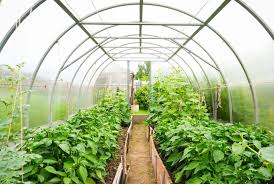Agriculture is generally regarded as the cultivation of crops and the rearing of animals for human and industrial uses. Agriculture has many branches that interplay in achieving agricultural goals.
These branches include agronomy, animal science, crop science, horticulture, agricultural economics, agricultural extension, plant breeding, crop protection, etc. One of these branches, horticulture, forms the basis of this article and shall be discussed in detail as the article progresses.
Read Also: How to Grow, Use and Care for Wiegand’s Sedge Grass (Carex wiegandii)
Meaning and Scope of Horticulture in Agriculture

The word horticulture is derived from two Latin words: “Hortus” meaning garden, and “Culture” meaning cultivation. Horticulture is therefore concerned with the cultivation of garden plants such as fruits, vegetables, flowers, and ornamental plants.
Horticulture may be defined as the science and art of growing fruits, vegetables, flowers, plantation crops, and ornamental crops for human, industrial, and aesthetic uses.
When horticulture is considered from both scientific and business perspectives, it can be broadly defined as the science and art of cultivating, processing, and marketing fruits, vegetables, flowers, and ornamental plants. Horticulture is a branch of agriculture and is subdivided into five main areas:
1. Pomology: The science and practice of fruit production.
2. Olericulture: The science and practice of growing vegetables.
3. Floriculture: The science and practice of flower and ornamental plant production.
4. Arboriculture: The science and practice of growing and caring for ornamental trees.
5. Landscaping: The science and practice of using plants outdoors for aesthetic and functional purposes.
Read Also: How to Grow, Use and Care for Whitetop Sedge Grass (Rhynchospora colorata)
Historical Development of Horticulture in Agricultural Systems

Horticulture is as old as mankind, since food is essential for survival. The concepts of garden cultivation can be traced as far back as three thousand BC or earlier in Egypt.
Historical evidence shows that by this time, crops such as grapes, dates, olives, and onions had been brought under cultivation by Egyptians. Technologies such as land preparation, pruning, irrigation, and drying were already in use.
The Hanging Gardens of Babylon, which featured flowers and fruits, were recognized as one of the seven wonders of the ancient world. During the Middle Ages (500–1500 CE), horticultural plants were cultivated in protected areas surrounded by high walls or similar structures in temperate regions of Europe.
As societies evolved, the deliberate cultivation and domestication of edible plants replaced the less efficient food gathering habits of primitive communities. Agriculture especially horticulture is therefore not a modern invention but one that has continued to transform as societies advance technologically.
The idea of intensive management of horticultural crops still applies today, even though some vegetables like tomato are now grown in open fields like other field crops.
At present, horticultural crops are cultivated not only in home gardens but also in large quantities as commercial enterprises. Numerous research efforts have been made to address the challenges associated with the cultivation of horticultural crops. A comparatively large volume of scientific information on the behavior of horticultural plants and products is now available.
Relevance of Horticulture in Crop Production and Agronomy
Horticulture is a branch of agriculture that complements crop science or agronomy in the production of crops such as fruits, vegetables, and nuts. It applies agronomic practices in the production, processing, and marketing of these crops.
This article has explained that horticulture is derived from two Latin words: “Hortus” meaning garden, and “Culture” meaning cultivation. Horticulture is defined as the science and art of cultivating, processing, and marketing fruits, nuts, vegetables, and ornamental plants.
It has also been established that the history of horticulture dates back to around three thousand BC, when crops such as onions, olives, and grapes were brought under cultivation in Egypt. The foundational ideas behind horticultural crop cultivation remain relevant in modern agricultural practices.
Do you have any questions, suggestions, or contributions? If so, please feel free to use the comment box below to share your thoughts. We also encourage you to kindly share this information with others who might benefit from it. Since we can’t reach everyone at once, we truly appreciate your help in spreading the word. Thank you so much for your support and for sharing!
Frequently Asked Questions
We will update this section soon.

